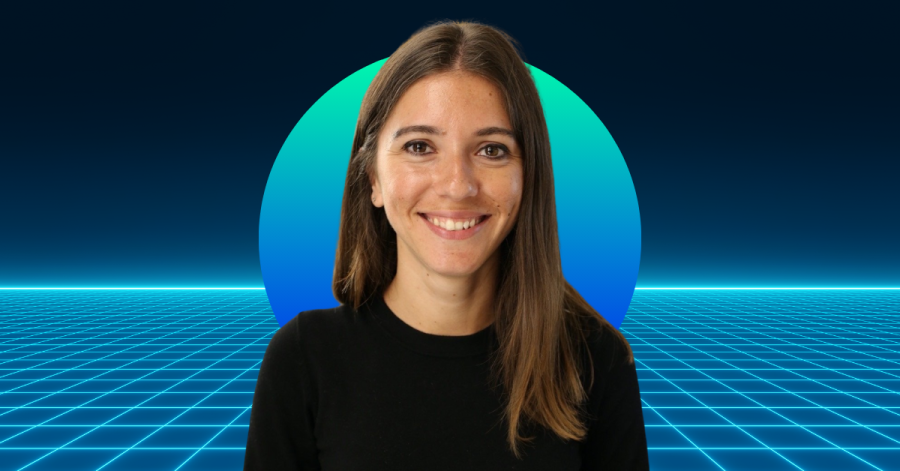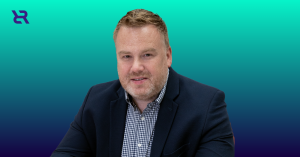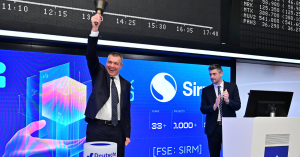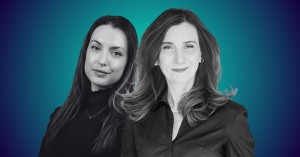In the entrepreneurial landscape, some founders extend their influence beyond building companies to nurturing entire ecosystems. They invest their personal capital to support emerging visionaries, taking bold risks on those who share their drive. Some go further, establishing venture capital funds and engaging deeply in the founder’s journey from the investor’s perspective.
Yet, many remain intensely focused on their own ventures. But even these dedicated builders might occasionally ponder: What if I were the one providing the funding? What kind of investor would I become?
In this special series, we’re reversing roles. We invite founders to assume the position of a venture capitalist—if only for an hour. Much like a reality show set in the startup world, we challenge them to think like a general partner and tackle the questions they typically face.
Our next acting investor is Asude Altintas Guray
Asude Altintas Guray is a Co-Founder and CEO of Twin Science & Robotics, an ed-tech startup dedicated to delivering holistic and humanitarian-centered STEM education to children worldwide. Twin Science offers educational robotics and coding kits that help children explore sustainable development goals and prototype solutions for sustainability.
Asude’s journey into social entrepreneurship began after attending Stanford University’s Executive Program in Social Entrepreneurship in 2015. She started her career at Young Guru Academy (YGA), a leading NGO in Turkey, where she initiated several high-impact social projects. During her tenure as president, YGA received numerous accolades, including MIT Innovators Under 35 and Forbes recognition.
Under Asude’s leadership, Twin Science & Robotics has grown into a prominent figure in the ed-tech sector, advocating for STEM education, especially for girls in underserved communities. She has also been invited to speak at the United Nations to present technology-based solutions as best practice examples worldwide. Asude’s dedication to education and innovation has been recognized through her membership in the Society of Leadership Fellows.
Imagine startups that could leverage nature’s R&D!
What would your investment thesis be if you were handed a VC fund today?
“Twin Science’s investment thesis would focus on purpose-driven technologies that aim to create a positive, meaningful impact on society. We would prioritize startups that develop science-based solutions to prevent problems before they arise rather than merely solving existing ones.
This includes tech-for-good initiatives, climate-friendly technologies, and social innovation platforms that focus on creating a better world by moving away from outdated systems like fossil fuels or conflict-driven progress. At Twin, we believe in fostering innovation that works in harmony with nature while uplifting humanity.”
What’s one startup idea or sector you’ve always believed in but never had the resources to explore? Would you fund it if you were a VC?
“In Twin Science, we have always been moved by the idea of nature-inspired, biomimicry-based solutions that tackle global challenges.
Imagine a startup developing technologies modeled after natural ecosystems, such as forests, to optimize urban infrastructure or reduce energy waste.
Biomimicry inherently focuses on efficiency, circularity, and lower environmental impact. These startups leverage nature’s R&D—millions of years of evolution—to deliver solutions that often use fewer resources and generate less waste. These ideas hold immense potential to create sustainable and resilient systems. If we were VCs, we’d fund ventures that bring these concepts to life, aligning deeply with Twin’s vision of working in harmony with nature to build a better future.”
TOP crazy idea: Merging nature’s adaptability with quantum-level precision
“One of the most daring ideas I would support is creating a city-wide sensor network grown from engineered mycelium—essentially, mushroom roots—infused with tiny quantum dots and linked by quantum-secure communication devices. The mycelium-based materials, which can be integrated into building structures, would naturally adapt and even self-heal over time.
Within this living network, quantum dots would respond to changes in light, humidity, and chemical signals, providing valuable environmental data. By transferring this information through quantum-secured photonic chips, the system could ensure both privacy and resilience against cyber threats.
Although it sounds futuristic, ongoing research in mycelium composites, quantum dot sensors, and quantum communication shows that each component is becoming feasible. Ultimately, merging nature’s adaptability with quantum-level precision could guide us toward more harmonious technologies where sustainability and security go hand in hand.”
Imagine you could create your dream portfolio as a VC. Which three startups—anywhere in the world—would you include and why?
“That would be Biohm, Spiber and Xanadu.
Biohm harnesses natural biological growth processes—particularly mycelium—to produce sustainable building materials that are biodegradable and carbon-negative. Integrating biological principles into construction aims to reduce environmental impact and usher in a regenerative, zero-waste building industry.
Spiber uses fermentation-based biotechnology to produce “Brewed Protein™” a new category of high-performance materials inspired by spider silk. These animal-free and petrochemical-free fibers offer an eco-friendly alternative for industries like fashion, aiming to drastically cut down on environmental harm.
Xanadu builds photonic quantum computers that leverage the properties of light particles to perform complex calculations faster than traditional computers. Their technology could accelerate breakthroughs in renewable energy storage, smarter grid optimization, and materials design, helping to foster a more sustainable energy future.”
Investing philosophy: Focusing on preventing problems rather than solving them
If a founder pitched to you with an idea similar to your own business, what would you look for to decide whether to invest?
“If a founder pitched to us with an idea similar to our own business, a key factor would be alignment with our core philosophy: focusing on preventing problems rather than solving them. We would also assess their commitment to science, education, and sustainability, and their ability to create tools that empower children and communities to thrive.
Moreover, we recognize the significant opportunities for innovation in areas like sustainable agriculture and foodtech, which remain underfunded in regions such as the CEE.
Ideas integrating healthcare technologies—including remote diagnostics, telemedicine, and digitalized patient management—would also stand out, as they address both local and global needs.
Additionally, startups leveraging automation in manufacturing and AI-driven logistics to enhance global competitiveness would align with our vision of sustainable, forward-looking innovation. Lastly, climate adaptation solutions tailored to regional conditions could bring substantial value. We believe such ventures could harness the region’s engineering expertise while supporting these often-overlooked areas while contributing to long-term economic resilience.
An investment decision ultimately hinges on how well the founder’s vision aligns with this broader sustainable, impactful innovation perspective.”
Which industries or niches in CEE, in your opinion, are currently overlooked but deserve more investment?
“From Twin Science’s perspective, the STEM for Sustainability education sector in the CEE region is significantly overlooked. While its importance is increasingly recognized, there’s still a gap in funding for innovative education technologies that empower children to tackle future challenges. Additionally, sustainability-focused industries and green tech startups need more support to scale and drive meaningful change in the region.”
Encouraging startups to focus on depth of impact
Are there regional startups or founders you admire that you would have loved to back if you were a VC? Why?
“There are several regional startups that we greatly admire and would have loved to back as a VC, as they embody innovation with a focus on impact:
UP School is revolutionizing education by empowering women with tech skills and enabling them to thrive in the digital economy. Their mission to close the gender gap in technology aligns deeply with our values of equity and creating opportunities through education.
WeWalk is an incredible example of how technology can be used for social good. Their smart cane for visually impaired individuals integrates cutting-edge technology to enhance mobility and independence, demonstrating the power of innovation in transforming lives.
Piri Guide is redefining how people experience culture and history through its location-based audio tour app. By combining storytelling with technology, they are making cultural exploration more accessible and engaging, which reflects a commitment to creating meaningful connections.”
What’s one thing you’d do differently as a VC to support founders better?
“Twin Science would focus on providing holistic support to founders, extending beyond financial investment. This includes access to role-model mentorship, networks, and educational resources to help startups scale their positive impact.
We would champion initiatives that encourage founders to focus on the size and the depth of impact. At Twin, we believe that empowering founders to dream big and prioritize prevention over reaction is key to creating a better future.”







